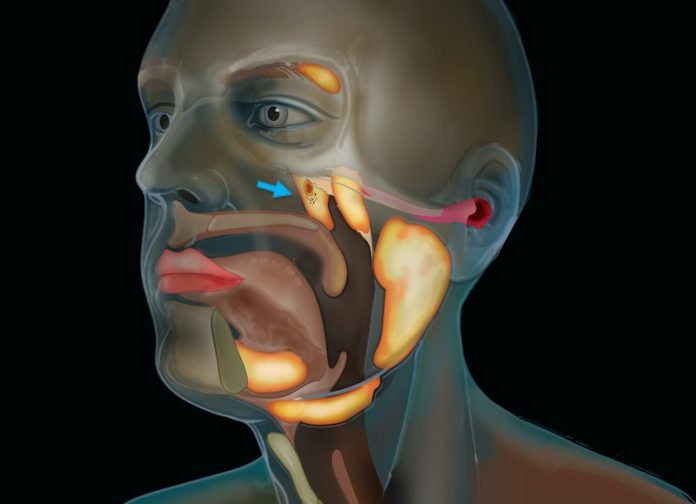
In a new study, researchers have discovered salivary glands in a previously unknown location.
This is potentially great news for patients with head and neck tumors: Radiation oncologists will now be able to circumvent this area to avoid potential complications.
The research was conducted by a team at the Netherlands Cancer Institute.
Patients with head and neck cancer, including tumors in the throat or tongue, are treated with radiation therapy.
Radiation therapy can damage the salivary glands, which may lead to complications. Patients may have trouble eating, swallowing or speaking, which can be a real burden.
Radiation of these previously undiscovered glands can also go hand in hand with these complications.
In the study, the researchers analyzed the data of 723 patients who had undergone radiation treatment.
They examined the side effects radiation can have on the head and neck.
The scans they studied highlighted salivary glands through the use of a marker in order to spare them during treatment.
The team found two unexpected areas lit up all the way in the back of the nasopharynx, which looked similar to known major salivary glands.
They discovered that all 100 people whose scans they studied had a set of these glands.
These patients had a new type of scan done for prostate cancer treatment, called PSMA PET/CT scanning. Salivary glands show up clearly on this kind of imaging.
The two new areas that lit up turned out to have other characteristics of salivary glands, as well. This was confirmed in the tissue of two human bodies.
The researchers call the new areas tubarial glands, referring to their anatomical location.
Their conclusion: The more radiation delivered to these new areas, the more complications the patients experienced afterward, similarly to what happens to known salivary glands.
This means that the discovery is not only surprising, but it could also be a benefit to cancer patients.
For most patients, it should technically be possible to avoid delivering radiation to this newly discovered location of the salivary gland system in the same way we try to spare known glands.
The team’s next step is to find out how they can best spare these new glands and in which patients.
If they can do this, patients may experience fewer side effects which will benefit their overall quality of life after treatment.
One author of the study is radiation oncologist Wouter Vogel.
The study is published in Radiotherapy & Oncology.
Copyright © 2020 Knowridge Science Report. All rights reserved.



